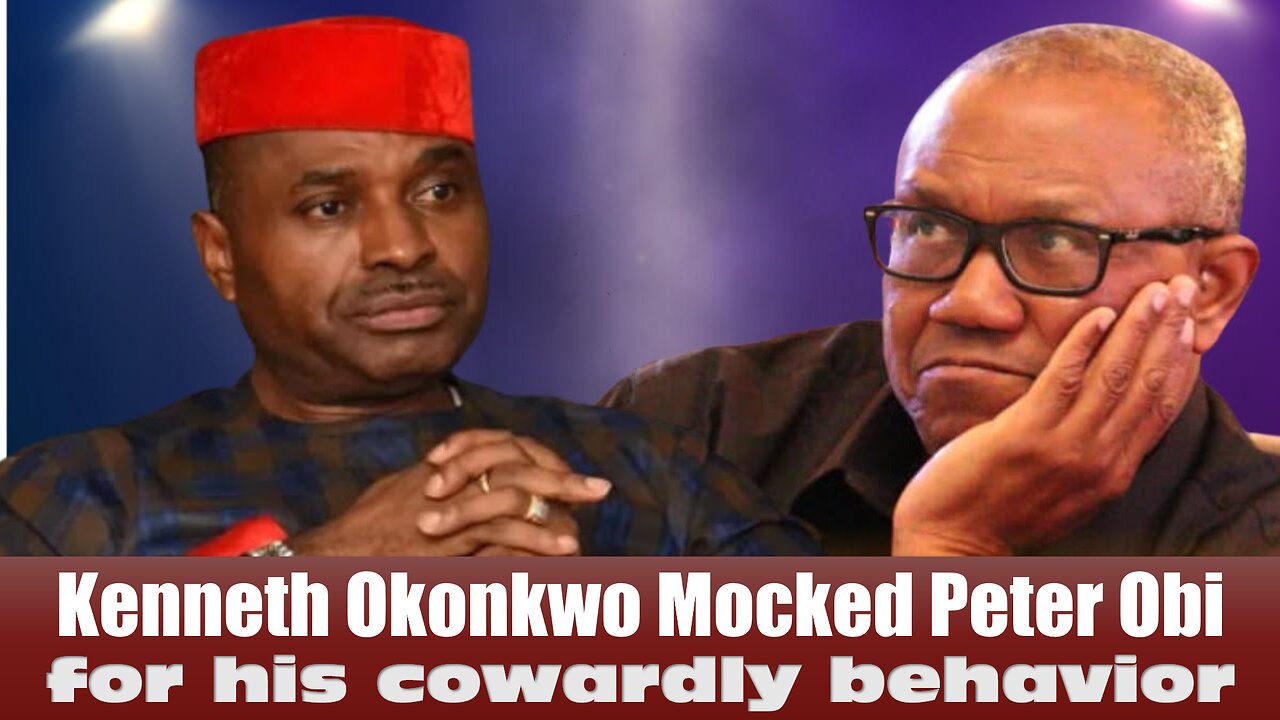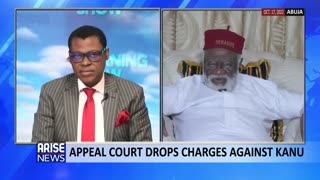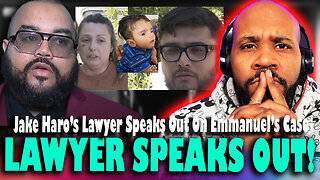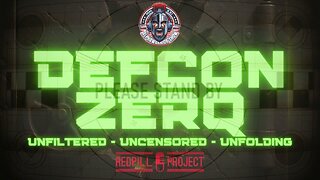Premium Only Content

Kenneth Okonkwo Ruthlessly Mocked Peter Obi For His Cowardice // Mazi Nnamdi Kanu Prayed
Kenneth Okonkwo fearlessly ridiculed Peter Obi for his lack of courage, while Mazi Nnamdi Kanu fervently offered a powerful prayer."
#EthnicConflict #Agitation #SelfDetermination #CivilWar #HumanRights #PoliticalUnrest #Nigeria #Nationalism #OhaNaEzeNdigbo #Sovereignty #CulturalIdentity #ColonialismAfrica #Biafra #Secession #IndigenousPeople #HistoricalConflict #Independence #PostColonialism #Decolonization
We brought to you a new update ravaging the zoological republic judicial system since its creation, where corrupt political class and criminal enterprise hijack all systems of government, with or without a constitution especially when it comes to political election. The educated ignorant could not decipher the political situation to this except one man by name; Mazi Nnamdi Kanu, the leader of the indigenous people of Biafra, and also a prisoner of conscience.
Here is the question! In a country like Zoo; what is the position of political leadership and roles, facing intimidation and electoral malpractices during an election rigged by the opposition? How will he coordinate his followers or voters and address them? Is it a good thing to be a coward for the sake of peace to allow hijackers to steal the political mandate or to resist the corrupt system by all means by the law-abiding citizens?
Now listen! Let's try to be civil to respond to the question: In situations where political leadership faces intimidation, electoral malpractices, or rigging, the leader is faced with a challenging decision: either to remain passive for the sake of peace or to mobilize resistance within the bounds of the law. Here’s a breakdown of the factors and strategies a leader might consider:
1. Assess the Situation and Maintain Legitimacy:
Calm Leadership: A leader must assess the gravity of the situation. Electoral malpractice can create anger and frustration among supporters, but it's important for the leader to remain calm and deliberate. The leader’s credibility often hinges on maintaining integrity and not being perceived as reckless.
Legal Recourse: Immediate actions should involve gathering evidence of electoral malpractices and filing official complaints through legal channels, such as election tribunals or courts. This maintains a law-abiding stance and leverages the system against corruption.
2. Mobilizing Supporters within the Law:
Peaceful Protest: Lawful mass mobilization can be an effective tool in raising awareness of electoral fraud. Encouraging peaceful protests or demonstrations allows followers to express their dissatisfaction without descending into violence, maintaining the moral high ground.
Voter Education: A leader can also focus on educating voters about their rights, the electoral process, and encouraging vigilance. This includes organizing observers for future elections and mobilizing grassroots efforts to prevent malpractice.
Coalition Building: Building coalitions with other political actors, civil society groups, and international organizations can increase pressure on electoral commissions or corrupt officials.
3. Addressing Followers and Voters:
Maintain Unity: The leader must keep the supporters motivated and unified. This is done by communicating regularly, offering clear plans for legal and peaceful resistance, and outlining the next steps. Clear messaging is vital to avoid frustration boiling over into violence or chaos.
Promote Hope, Not Fear: The leader should avoid rhetoric that might incite violence. Instead, they should emphasize hope for a legitimate resolution and inspire faith in a long-term democratic process.
4. Non-Violent Resistance vs. Appeasement:
Resisting Corruption: Law-abiding resistance to a corrupt system is important in preserving democratic institutions. This may involve challenging results, seeking recounts, or demanding electoral reforms. Non-violent resistance, like the actions of civil rights leaders such as Martin Luther King Jr. or Nelson Mandela, has proven effective in the face of oppressive systems.
Avoiding Cowardice: Allowing corrupt leaders to take power without resistance may foster a cycle of impunity, where malpractices continue unchallenged. While seeking peace is noble, passive surrender to hijackers of political mandates can undermine democracy and disenfranchise citizens.
Balancing Peace and Resistance: While resisting electoral fraud is important, it’s equally crucial that the means of resistance do not lead to violence or civil unrest. Law-abiding, non-violent actions protect the integrity of the movement and can inspire wider public support.
Conclusion:
Leaders facing electoral malpractices and intimidation must strike a delicate balance between resisting injustice and maintaining peace. Legal recourse, peaceful protest, and constant communication with followers are critical to addressing electoral fraud. Allowing hijackers to take power without challenge could damage democratic processes long-term, but resistance must be responsible and law-abiding to maintain legitimacy and avoid unnecessary conflict.
In sum, it’s not about being a coward or engaging in violence but about upholding the law while firmly resisting corruption and protecting democracy.
Please share, like, and subscribe to our channel. See you soon on another video, thanks for watching!
Kenneth Okonkwo Ruthlessly Mocked Peter Obi For His Cowardice // Mazi Nnamdi Kanu Prayed
PLEASE FOLLOW ALL OUR MEDIA PLATFORMS BELOW:
https://rumble.com/BiafraBattleCry
https://twitter.com/BiafraBattleCry
-
 27:16
27:16
Biafra Battle Cry
4 days agoKanus Release Going to the Supreme Court Will Be a Complete Waste of Time - Dr. Chukwuemeka Ezeife
181 -
 16:43
16:43
GritsGG
16 hours agoThey Buffed This AR & It Slaps! Warzone Loadout!
12.3K1 -
 2:05:30
2:05:30
Side Scrollers Podcast
20 hours agoEveryone Hates MrBeast + FBI Spends $140k on Pokemon + All Todays News | Side Scrollers Live
106K11 -
 11:06
11:06
The Pascal Show
14 hours ago $1.32 earned'THEY'RE GETTING DEATH THREATS!' Jake Haro's Lawyer Breaks Silence On Emmanuel Haro's Disappearance!
14K1 -
 LIVE
LIVE
Lofi Girl
2 years agoSynthwave Radio 🌌 - beats to chill/game to
316 watching -
 2:19:32
2:19:32
Badlands Media
1 day agoDEFCON ZERO Ep. 005: False Flags, Cyber Fronts & Global Power Plays
153K66 -
 2:35:23
2:35:23
FreshandFit
9 hours agoWhy Black Men Don't Date Black Women Debate
43.5K40 -
 2:03:42
2:03:42
Inverted World Live
13 hours agoBigfoot Corpse Coming to the NY State Fair | Ep. 94
111K27 -
 6:16:23
6:16:23
SpartakusLIVE
14 hours ago$1,000 Pistol Challenge || #1 ENTERTAINER of The EONS Eradicates BOREDOM
87.4K2 -
 2:33:37
2:33:37
TimcastIRL
11 hours agoTrump Orders Review of Smithsonian For Being Woke & Out of Control | Timcast IRL
194K88